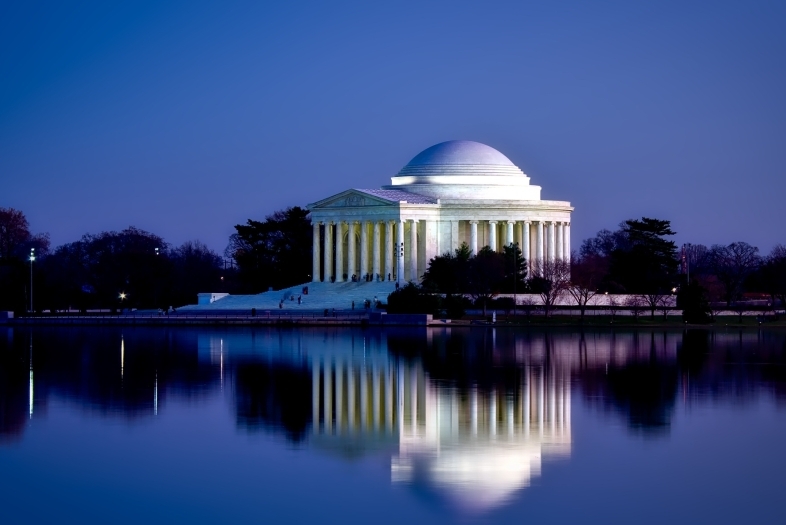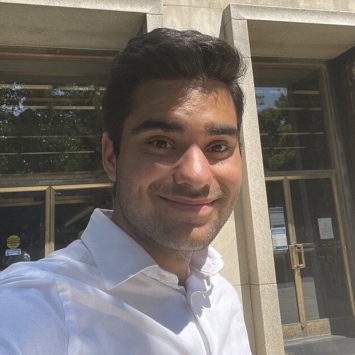
Davidson in Washington
Davidson in Washington (DIW) is an eight-week program that offers thirty-five selected students the opportunity to gain real-world government internship experience within the nation's capital, while simultaneously obtaining course credit for a political seminar taught by a Davidson political science professor.
Summer 2026
Dates: June 1 – July 24, 2026
Eligibility: Rising sophomores, juniors and seniors may apply for the program (with preference to more senior students). Eligibility is NOT limited to political science majors; students who have yet to declare a major and those majoring in another discipline are encouraged to apply. Participants are required to have a minimum GPA of 2.5.
Application Process: The application form is available on Handshake. Information about setting up a student account on Handshake is available through The Matthews Center for Career Development.
Deadline: The application deadline is Friday, November 7, 2025 by 5 p.m.
About the Program
For more information about tuition and housing, and the program's two full-course credit components (a political science seminar and a government internship, download the program handout (PDF).
The Seminars
The two 2026 seminars will be “Judicial Power and Democratic Governance" taught by Prof. O'Geen and "International Institutions and Global Governance” taught by Prof. Crandall. Details of each seminar are in the program handout (PDF). Students will be asked if they have a preference, and we will try to honor your preference, but the co-directors reserve the right to assign students to a seminar to achieve rough balance in numbers.
The Internship
With the assistance of the Betty and B. Frank Matthews II ’49 Center for Career Development (Matthews Center), each student is responsible for applying and serving as an intern in Washington area offices. For more information about how credit is earned, please refer to the program handout (PDF). It's also useful to review the list of recent DIW internships.

Davidson in Washington has fundamentally altered my career trajectory. The opportunities to connect with professionals and alumni, hear from scholars—and, most importantly—gain work experience in the field which I was passionate about have informed the types of career opportunities I’d like to pursue in the future. In essence, Davidson in Washington helped me understand what I love to do.
For more information about the program, email either Dr. O'Geen (anogeeen@davidson.edu) or Dr. Crandall (brcrandall@davidson.edu).
Download the Davidson in Washington Program Guide